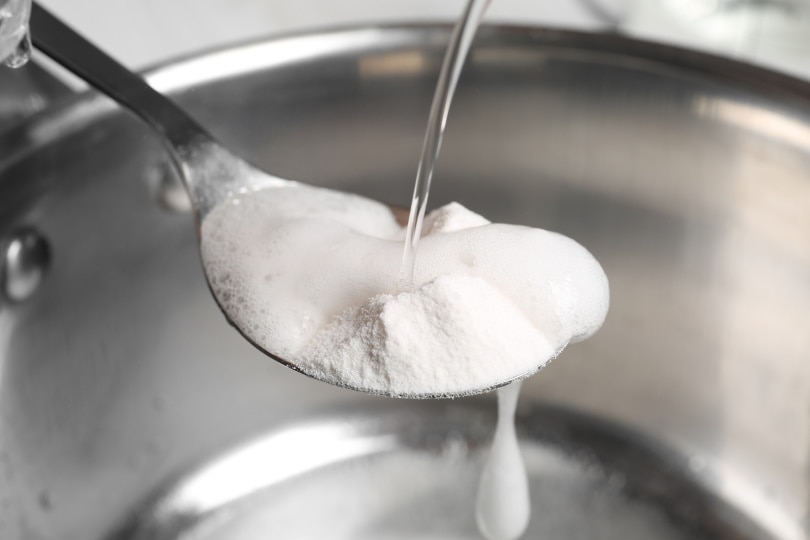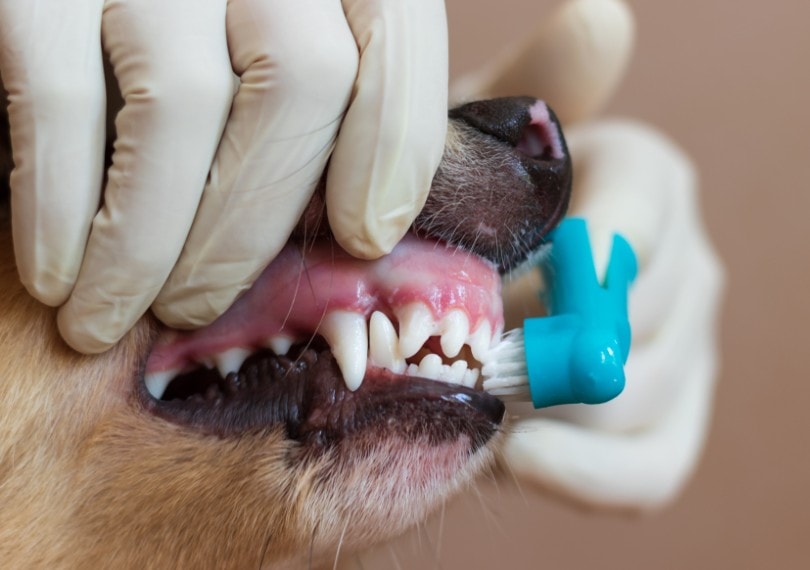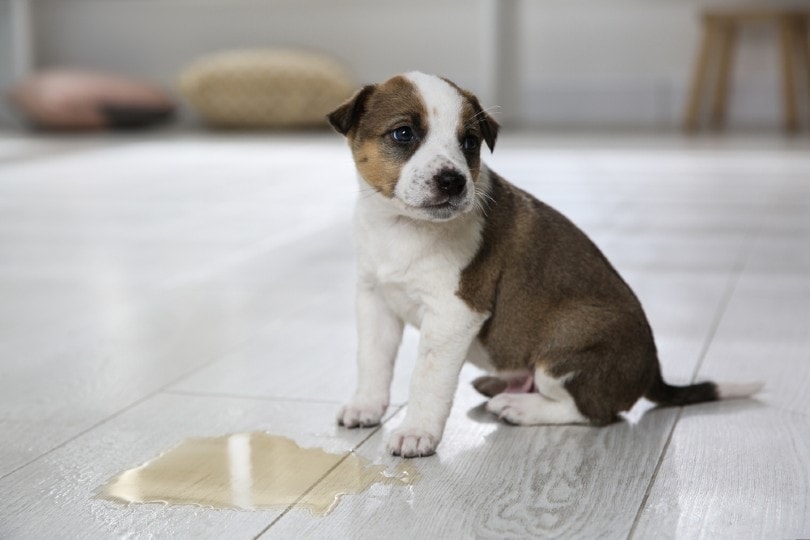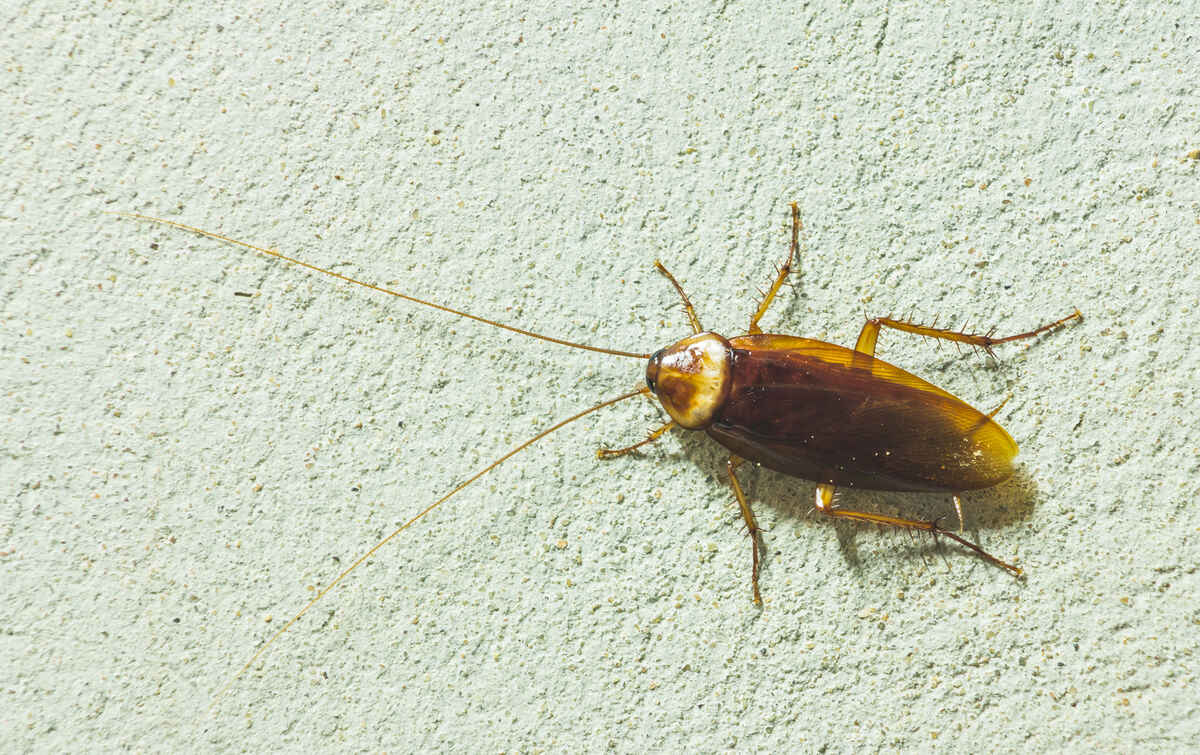A dog that smells fishy is considered unusual, and a fishy smell can either come from your dog’s mouth, skin, or genital area. Certain medical conditions or poor hygiene can leave your dog with a fishy odor that can make leave your dog smell foul. It can be difficult to get rid of the fishy smell from your dog, especially if it is caused by a medical condition that needs treatment from a veterinarian.
If you have noticed that your dog has a fishy odor, you should take them for a checkup at the veterinarian to rule out any serious health conditions that can be causing a fishy odor from your dog’s body.
We have compiled a list of easy methods you can use to get rid of your dog’s fishy smell.
How to Get Rid of Fishy Smell from Your Dog
1. Baking Soda Bath
Baking soda is great at neutralizing odors, and it can help rid any fishy odors from your dog’s body when used alongside a shampoo. You can mix baking soda into the water you are bathing your dog in, or you can make a thin paste mixed with water and lather it onto the smelliest areas.
Another option is to combine baking soda and water into a spray bottle and spray the mixture onto your dog’s coat (avoiding their eyes and ears). The baking soda should be used on your dog’s body after shampooing and left to sit for a few minutes before rinsing it off. This can be used with a medicated or deodorizing shampoo prescribed by a veterinarian if the fish odor is caused by a skin condition.
- 3½ tablespoons of baking soda
- 350 ml of lukewarm water
Directions:
Mix the tablespoons of baking soda into the lukewarm water and add to a spray bottle. Spray the solution onto your dog’s fur and especially on the smelliest areas. Let it sit for 10 to 15 minutes before rinsing off and drying your dog.

2. Dietary Changes
If your dog’s food contains fish-based ingredients, it can cause your dog’s breath to smell fishy after they have eaten. The fishy food can also get caught around your mouth and dry, causing a foul-smelling odor. If your dog’s diet is the source of the fishy odor, speak to your dog’s veterinarian about changing their diet to one that doesn’t contain fish as the main ingredient.
If the fishy odor from your dog’s breath doesn’t change from dietary changes, it could be caused by poor dental hygiene. You should also ask your dog’s veterinarian for gut health supplements if there is perhaps an underlying digestive issue caused by a gut imbalance.
3. Dental Hygiene
A fishy odor emitting from your dog’s mouth can be unpleasant, especially when they pant or lick your face. Certain dental problems such as a buildup of plaque and tarter can cause halitosis. Certain mouth injuries such as periodontal disease, root canal issues, and injuries to your dogs’ gums can cause a fishy odor from fungus and bacterial growth.
Take care of your dogs’ teeth by using an enzymatic, dog-safe toothpaste recommended by a veterinarian to clean your dogs’ teeth. Your dog’s teeth and mouth should also be assessed for any issues that can be causing the fishy smell.
In some cases, a veterinarian will prescribe an antibiotic to help fight off any infections in your dog’s mouth causing bad breath.

4. Unblock Anal Glands
Blocked or infected anal glands can lead to a fishy odor near your dog’s butt. You can help relieve the blocked anal glands by massaging them with a warm washcloth, but the better option is to take your dog to a veterinarian to help with the blockage through an anal gland expression. If the anal glands are infected, a veterinarian will prescribe a treatment to help with the infection.
Anal gland problems seem to be more common in small dog breeds or overweight dogs, and they will need to be manually emptied as the secretions are causing the fishy odor.
5. Treatment of UTI Infections
Fishy-smelling urine can be caused by a urinary tract infection (UTI) from bacterial overgrowth. Your dog’s veterinarian will take a urinalysis from a pee sample and if your dog is found to have a UTI, then a veterinarian will prescribe the right treatment. You will need to bathe your dog and pay special attention to their hind legs and stomach when shampooing, as some of the fishy urine might be stuck on their fur.

6. Medicated Shampoo
Your dog may have a skin condition such as allergies which can cause a secondary bacterial infection or seborrhea and they will cause a fishy odor from your dog’s fur. This condition can be treated with a medicated shampoo. After treatment with a medicated shampoo, your dog’s veterinarian might recommend using a deodorizing dog-safe shampoo until their fur has lost the fishy smell.
Final Thoughts
A fishy smell from your dog’s body or breath is unpleasant, and it is not normal for most dogs. The fishy smell can be caused by an underlying health issue or even dental disease and problems with your dog’s digestive and gut health.
A fishy smell can be simple to solve if it is caused by your dog’s diet, but certain health issues will require treatment from a veterinarian after examination to determine what is causing your dog’s fishy smell.
Featured Image Credit: san4ezz, Shutterstock












